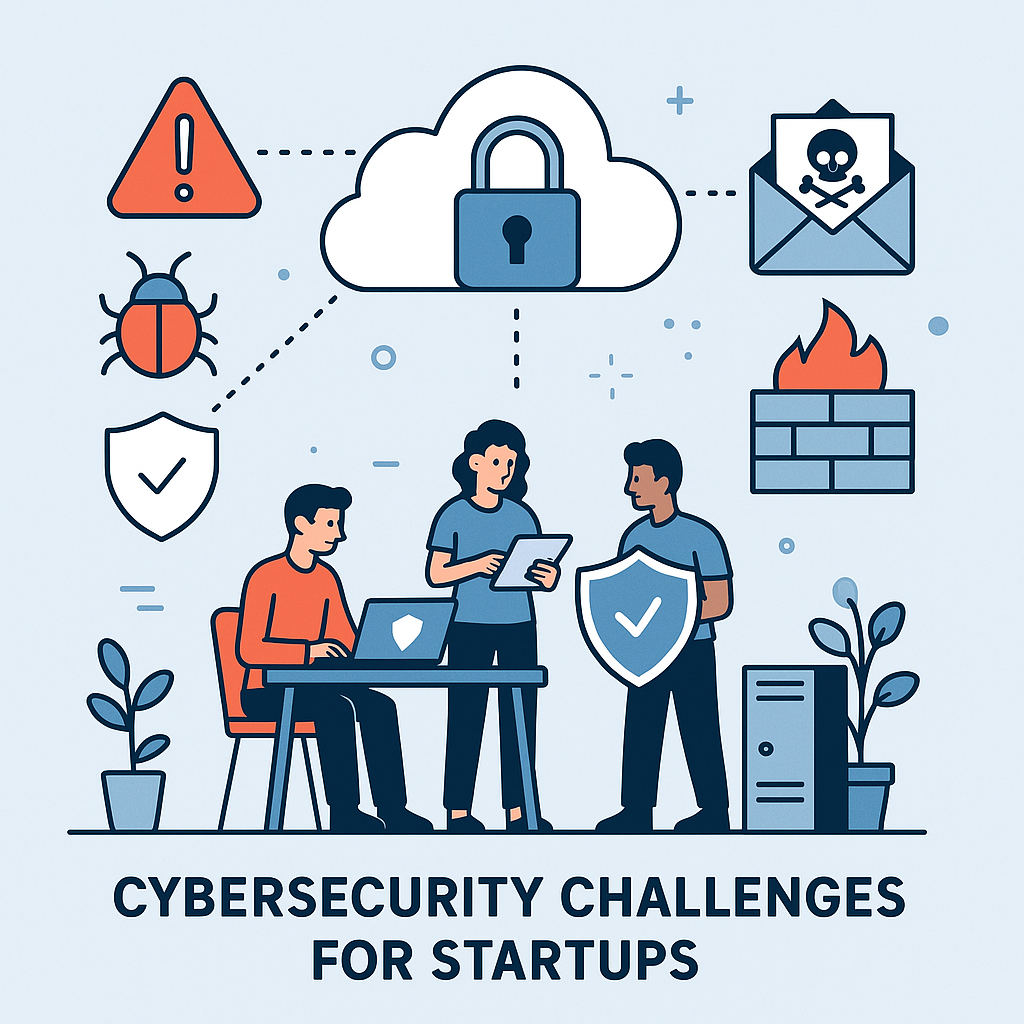
Cybersecurity Challenges and Solutions for Startups
Introduction
In the digital-first world, cybersecurity challenges for startups are increasing rapidly. Startups are often agile, fast-paced, and tech-driven—but these same traits can leave them exposed to cyber threats. Whether you’re building a SaaS product, e-commerce store, or AI-powered app, understanding and implementing startup cybersecurity solutions is crucial from day one.
Why Startups Are Easy Targets for Cyberattacks
Unlike large corporations, startups usually have limited budgets, small IT teams, and minimal security training. This creates a perfect storm for cybercriminals, who exploit:
- Weak passwords and user authentication
- Phishing emails and social engineering
- Outdated software and plugins
- Poorly configured cloud systems
Startups are seen as low-hanging fruit by hackers—high-value data, low defense.
Top Cybersecurity Challenges for Startups
1. Limited Resources
Most startups can’t afford enterprise-level cybersecurity teams or tools. As a result, they rely on generic or outdated protection methods.
2. Lack of Awareness
Team members often unknowingly compromise security by clicking suspicious links, using unsecured networks, or reusing passwords.
3. Misconfigured Cloud Infrastructure
Startups increasingly rely on services like AWS, Google Cloud, or Azure. Without proper configuration, sensitive data may be exposed publicly.
4. Insider Threats
Employees, interns, or former team members with access to internal systems can unintentionally—or maliciously—cause data leaks.
5. Bring Your Own Device (BYOD) Risks
When employees use personal devices for work without security protocols, vulnerabilities increase dramatically.
🔗 Also read: Why Every Startup Needs a Data Privacy Policy
Startup Cybersecurity Solutions That Actually Work
1. Start with Basic Cyber Hygiene
- Use multi-factor authentication (MFA) on all accounts
- Enforce strong, unique passwords via a password manager like 1Password or Bitwarden
- Keep all systems, plugins, and devices up to date
2. Secure Your Cloud Platforms
- Set strict user roles and permissions
- Use monitoring tools to detect unusual activity
- Enable encryption for data in transit and at rest
🔗 Explore: Cloud Security vs On-Premise: What’s Better for Startups?
3. Train Your Team
- Run quarterly security awareness sessions
- Teach staff how to recognize phishing attacks
- Set policies for secure device use
4. Backup and Encrypt Data
- Back up critical data regularly to a secure, separate location
- Use full-disk encryption on company laptops and drives
5. Use Lightweight Security Tools
- Antivirus/Endpoint Protection: Bitdefender, Norton, or CrowdStrike
- VPNs: ProtonVPN, NordVPN
- Monitoring Tools: Cloudflare, Sucuri for websites
🔗 Recommended read: Top 5 Tools Every Tech Startup Should Use
When to Bring in an Expert
As your startup grows, it’s smart to:
- Hire a part-time CISO (Chief Information Security Officer)
- Schedule annual penetration tests or security audits
- Use managed security providers for real-time protection
Cybersecurity Is an Ongoing Strategy
There’s no one-time fix for cybersecurity. It’s a mindset and a culture. Make it a habit to:
- Review security settings every 3 months
- Educate new hires on data handling policies
- Stay updated on new cyber threats and trends
🔗 Also read: Blockchain Technology: A Game Changer for Startups
